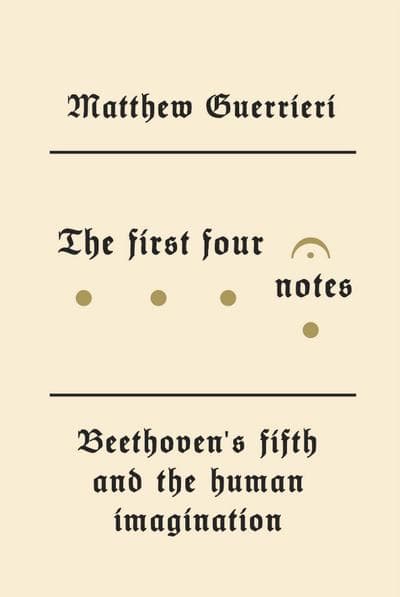Advertisement
'The First Four Notes': Understanding Beethoven's 'Fifth Symphony'
Resume
Dun dun dun dunnnnn.
The iconic first four notes of Beethoven's "Fifth Symphony" have worked their way into what's considered "good cultural literacy," says Matthew Guerrieri, composer, music critic for The Boston Globe and author "The First Four Notes: Beethoven's Fifth Symphony And The Human Imagination." (Read an excerpt from Chapter 1.)
"It feels so powerful in performance that it's not really saying anything specific, but it feels like it's saying so much that's important," he said.

He explained that Beethoven got the idea for the symphony's opening notes from a birdsong — the song of the yellowhammer. But Beethoven also listened to and admired French Revolution propaganda music, and it was the composition of such music that led him to use those first four notes as the "scaffolding of an entire piece," Guerrieri said.
Guerrieri joins Radio Boston to talk about the staying power of Beethoven's music.
Matthew Guerrieri will be speaking at Harvard Book Store in Cambridge on Friday, Nov. 30 at 7 p.m.
Guest:
- Matthew Guerrieri, composer, music critic for The Boston Globe and author of "The First Four Notes." He blogs at Soho The Dog.
This segment aired on November 29, 2012.